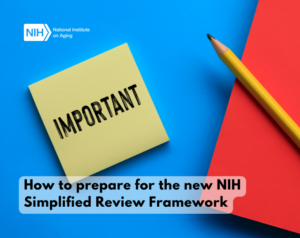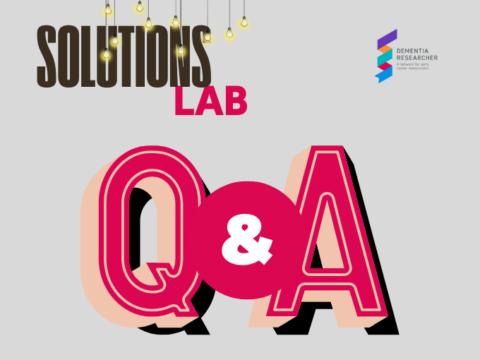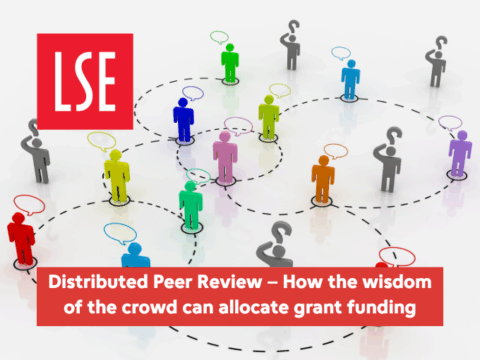 While summer can be a welcome chance to slow down a bit, it’s also often a good time to plan ahead. In that spirit, we are flagging some significant adjustments on the horizon for NIH peer review for applications received on or after Jan. 25, 2025. Fortunately, there are multiple NIH resources to enable reviewers and investigators to get up to speed and be ready!
While summer can be a welcome chance to slow down a bit, it’s also often a good time to plan ahead. In that spirit, we are flagging some significant adjustments on the horizon for NIH peer review for applications received on or after Jan. 25, 2025. Fortunately, there are multiple NIH resources to enable reviewers and investigators to get up to speed and be ready!
Responding to feedback
The changes to the Simplified Review Framework are by no means sudden or arbitrary; rather, they have been in the works for several years now as part of a process in which the NIH Center for Scientific Review (CSR) and Office of Extramural Research (OER) solicited and responded to feedback on peer review from the scientific community. Three main needs were identified through this solicitation:
- Aid for peer reviewers to help them focus on answering the key questions necessary to assess an application’s scientific and technical merit
- Better leveling of the playing field by reducing the emphasis by the review panel on applications from well-established investigators or institutions
- A reduction in reviewer burden
NIH believes the Simplified Review Framework will help ensure fairness for all applicants and make the process easier for reviewers.
What do these changes mean for reviewers and applicants?
The Simplified Review Framework will come with adjustments for reviewers and applicants. For reviewers, the previous five standard review criteria will be reorganized into three factors, all of which will be considered to arrive at the Overall Impact score. This will help focus reviewers on three central questions:
- How important is the proposed research? (numerically scored)
- How rigorous and feasible are the methods? (numerically scored)
- Do the investigators and institution have the expertise/resources necessary to carry out the project? (rated as acceptable or unacceptable, and considered in the overall score)
For applicants, the new framework will mean paying closer attention to activity codes and due dates. Simplified peer review applies to most but not to all research project grants. For example, the reviews of small business or complex, multi-project applications are not covered by the new framework.
For more information, check out the multitude of resources available to reviewers and applicants, including:
- Overview of Grant Application and Review Changes for Due Dates on or after January 25, 2025 (NOT-OD-24-084): This is your “home base” notice for overarching and detailed information on this topic.
- Plugging Into NIH: Conversations and Connections — Overview of Grant Application and Review Changes: A video overview of the important changes.
- Simplifying Review of Research Project Grant Applications: A webpage with additional background information, applicant and reviewer guidance, links to frequently asked questions, training resources, and related NIH announcements.
- CSR Review Matters blog and OER’s Open Mike blog: Both blogs post information relevant to the new framework to guide reviewers and applicants along the way.
- NIH Online Briefing Webinar: This recent webinar provides a helpful overview of the new framework along with a Q&A session.
Reach out to us with questions
Change is exciting, but it can also be stressful. Our team is always happy to help with your questions and concerns. Email Ramesh or Birgit, visit the NIA Scientific Review Branch homepage, or leave a comment below. We look forward to working with you on making the peer review process easier and more equitable!
Authors
Ramesh VEMURI, Ph.D., Chief, Scientific Review Branch (SRB).
Birgit NEUHUBER, Ph.D.,, Deputy Chief of Review, Scientific Review Branch (SRB).

 Print This Post
Print This Post



